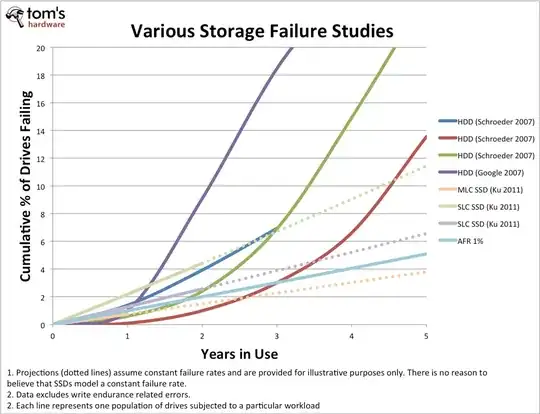One of our favourite StackExchange Overlords, Jeff Atwood, wrote a Coding Horror blog article in May 2011, decrying the unreliability of SSD drives.
Solid state hard drives fail. A lot. And not just any fail. I'm talking about catastrophic, oh-my-God-what-just-happened-to-all-my-data instant gigafail. It's not pretty.
[Emphasis his.]
He then gave anecdotes about 11 out of 12 SSDs failing within 18 months (average lifetime: around 227 days, according to one commenter). The commenters added more anecdotes.
Dire predictions indeed.
Meanwhile, the manufacturers are painting a far rosier picture:
MTBF: >2,000,000 Hours - two of the failing devices.
Super Talent Ultra Drive: MTBF >1 million hrs - one of the failing devices.
OCZ Vertex 1: MTBF 1.5 million hours - one of the failing devices.
OCZ Vertex 3: MTBF 2.0 million hours - one of the drives Atwood bought to replace a failed one.
(I have haven't chased down all of the device he mentioned - enough to show a discrepancy between the claim. I have tried to match the tech specs to the devices that Atwood describes, but that can be tricky sometimes - feel free to double-check.)
So, my question is: Who should I believe?
(Possible approaches include: Are there any independent tests? Are there formal, audited procedures that manufacturers must follow before making an MTBF claim? Is MTBF a misleading measurement? Have Atwood and his cronies just been unlucky?)
 -
-